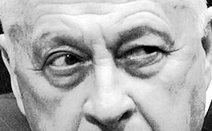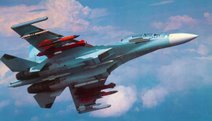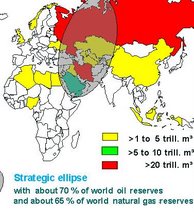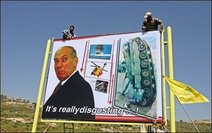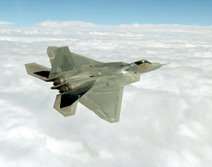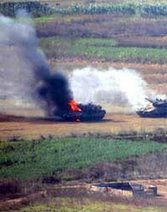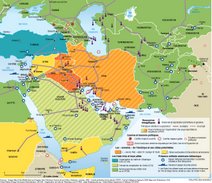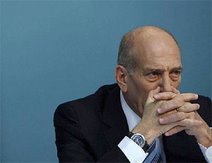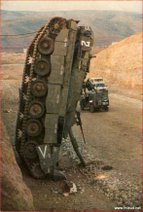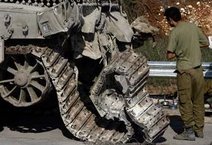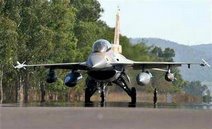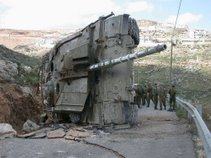A fair fight for Lebanon's army
By Nicholas Noe
BEIRUT:
In the wake of a narrowly averted civil war here last month, the United States now has a unique opportunity to help build something that all the parties to the conflict have said they very much want: a strong Lebanese Armed Forces.
Unfortunately, even though the Bush administration has provided more than $300 million in tactical aid to Lebanon since the Syrian withdrawal of 2005, it still apparently refuses to provide the kind of strategic weapons - guided rockets, tanks, modern artillery and intelligence-gathering equipment - that are desperately needed in this task. During her visit to Beirut this week, Secretary of State Condoleezza Rice didn't even mention the issue.
The reason for this, American and Lebanese officials say privately, is a longstanding prohibition against supplying Lebanese forces with advanced equipment that could be used against Israel.
This "red line" remains even though Hezbollah has far more dangerous weaponry, and despite Washington's commitment to build up the authority of the state. It is a testament to how short-sighted and contradictory the American approach to Lebanon has been.
Indeed, last month in Beirut, the army was left without the equipment that would have enabled it to be a more forceful mediator in the street battles involving Hezbollah and its rivals.
The lack of equipment also contributed to the military's inability last summer to quickly roust a group of Islamist militants from a Palestinian refugee camp in northern Lebanon. Late in that conflict, the United Arab Emirates donated advanced Gazelle helicopters to Lebanon, but Washington required all advanced rocketry to be removed before shipment. As a result, soldiers were forced to drop shells from the helicopters by hand, destroying much of the camp, when they might have been able to pinpoint the Islamist fighters.
Moreover, when Russia stepped in to offer the Lebanese military essentially anything it wanted, free of charge, according to one former military official involved in the discussions, the Bush administration prohibited the Lebanese government from accepting the offer.
Thankfully, the United States now has an opportunity to right some of the wrongs of the past, and in the process help draw a peaceful roadmap for Hezbollah's eventual normalization.
The violence in Beirut seems to have reduced support for Hezbollah among some Lebanese, as well as demonstrated just how much the group needs the Lebanese Armed Forces. In fact, without the military, Hezbollah would have been left with the unsavory option of pursuing a Hamas-style takeover of Lebanon in full, something it clearly did not want.
In the end, the presence of the armed forces afforded Hezbollah and its rivals a way to quickly withdraw, clearing the way for negotiations that led to the installation of a president and should shortly lead to a new national unity government.
Hezbollah's reduced popularity and its reliance on the army set an ideal foundation for the most important task facing the new government: creating a credible defense plan. Give the Lebanese an army able to meet the perceived threats emanating from Israel (primarily involving water, territory and a possible future expulsion of Palestinians to Lebanon), and then, Hezbollah has said, its independent weaponry can be tackled. Encouraging this dynamic should be at the top of the American agenda in Lebanon, especially since the two primary disputes between Hezbollah and Israel (the status of Shebaa Farms and a prisoner exchange) appear on the verge of a resolution - thus further undercutting Hezbollah's rationale for bearing arms.
This necessarily means accepting a strong force arrayed defensively against Israel. But ultimately the United States would do far better for Lebanon and its own interests by allowing the country's military to get what it needs, rather than leaving the field open to Hezbollah.
Nicholas Noe is the editor in chief of Mideastwire.com and the editor of "Voice of Hezbollah: The Statements of Sayyed Hassan Nasrallah."
Thursday, June 19, 2008
Subscribe to:
Comments (Atom)



